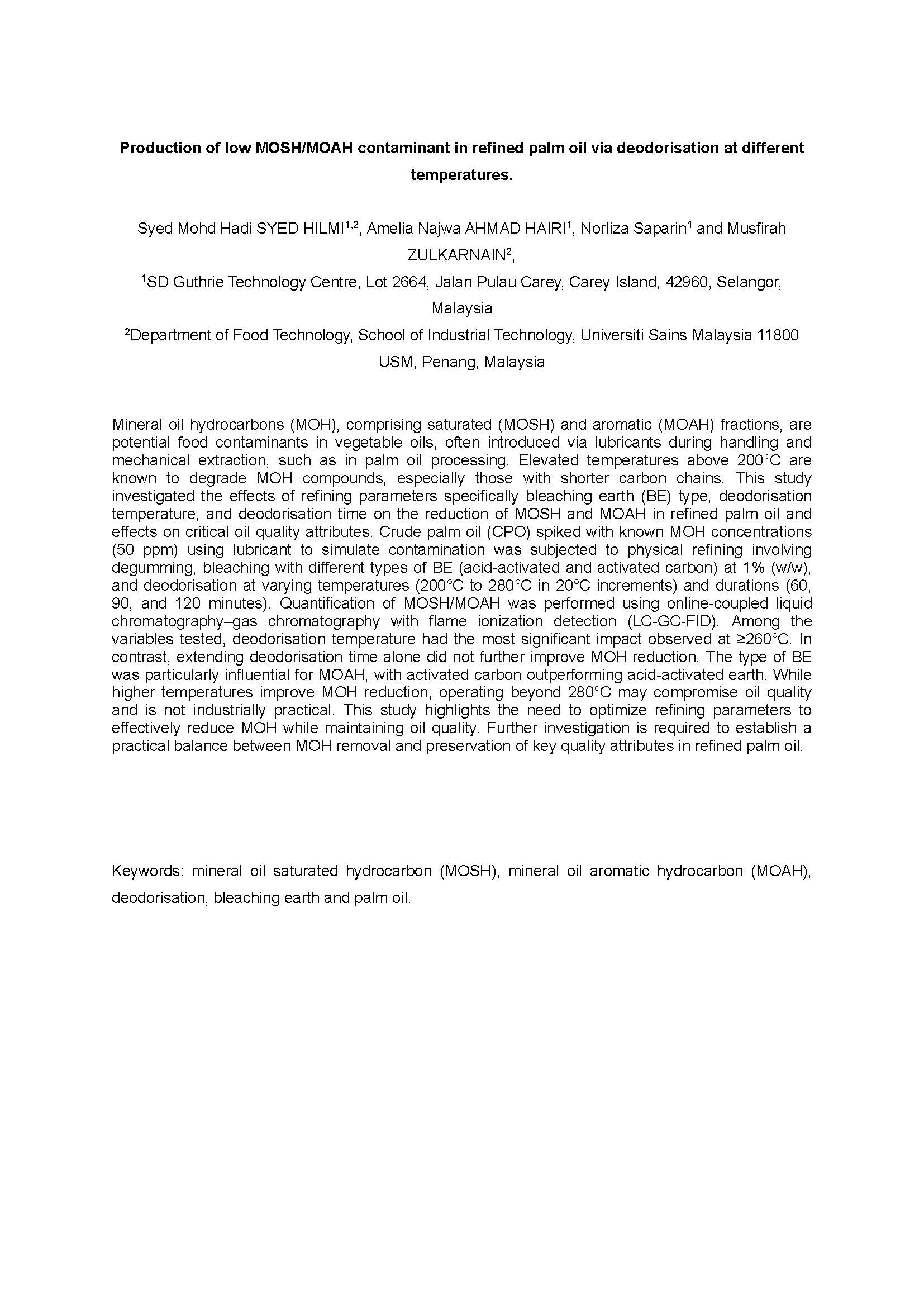Mineral oil hydrocarbons (MOH), comprising saturated (MOSH) and aromatic (MOAH) fractions, are potential food contaminants in vegetable oils, often introduced via lubricants during handling and mechanical extraction, such as in palm oil processing. Elevated temperatures above 200°C are known to degrade MOH compounds, especially those with shorter carbon chains. This study investigated the effects of refining parameters specifically bleaching earth (BE) type, deodorisation temperature, and deodorisation time on the reduction of MOSH and MOAH in refined palm oil and effects on critical oil quality attributes. Crude palm oil (CPO) spiked with known MOH concentrations (50 ppm) using lubricant to simulate contamination was subjected to physical refining involving degumming, bleaching with different types of BE (acid-activated and activated carbon) at 1% (w/w), and deodorisation at varying temperatures (200°C to 280°C in 20°C increments) and durations (60, 90, and 120 minutes). Quantification of MOSH/MOAH was performed using online-coupled liquid chromatography–gas chromatography with flame ionization detection (LC-GC-FID). Among the variables tested, deodorisation temperature had the most significant impact observed at ≥260°C. In contrast, extending deodorisation time alone did not further improve MOH reduction. The type of BE was particularly influential for MOAH, with activated carbon outperforming acid-activated earth. While higher temperatures improve MOH reduction, operating beyond 280°C may compromise oil quality and is not industrially practical. This study highlights the need to optimize refining parameters to effectively reduce MOH while maintaining oil quality. Further investigation is required to establish a practical balance between MOH removal and preservation of key quality attributes in refined palm oil.
Keywords: mineral oil saturated hydrocarbon (MOSH), mineral oil aromatic hydrocarbon (MOAH), deodorisation, bleaching earth and palm oil.
